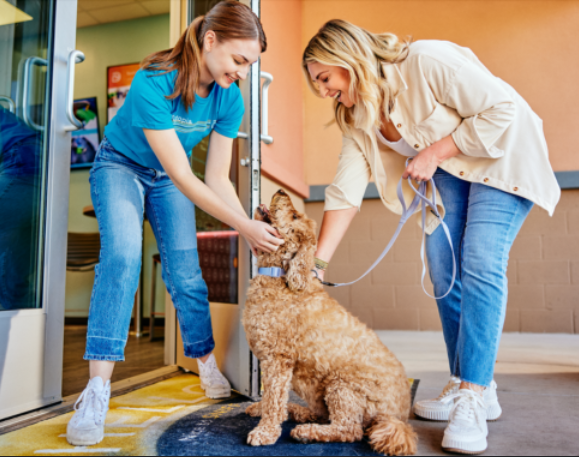If you’re vacationing with your furry friend this summer, it’s essential to plan for emergencies, advises the Royal College of Veterinary Surgeons (RCVS). Veterinary practices across the UK are mandated to provide out-of-hours emergency veterinary care, a commitment recently reaffirmed. However, it’s crucial for pet owners to be aware of what to do and where to go in case of a veterinary emergency, especially when traveling away from home.

“Although holidays for pets are typically filled with new adventures, it’s vital to be prepared for unexpected situations,” says RCVS Vice-President Jerry Davies. “In emergencies, pets rely on prompt veterinary attention, so owners must know in advance how to respond.”
The easiest way for pet owners to locate nearby veterinary practices in UK holiday destinations is through the College’s free online ‘Find-a-Vet’ service. This service allows searches by town or postcode and indicates whether practices are accredited by the RCVS under its Practice Standards Scheme, promoting and upholding the highest standards of veterinary care.
“Outside regular practice hours, emergency veterinary treatment may vary, and owners should be aware of the local provisions,” Jerry advises. “Practices may handle emergencies themselves, collaborate with other practices, or engage dedicated emergency service providers.”
“Practices should clearly explain their arrangements for after-hours care, so it’s advisable to contact them beforehand for clarification,” he adds. “Your regular veterinary practice may also assist in identifying a suitable practice at your vacation spot.”
Before embarking on your holiday, pet owners should keep the following in mind:
- Use findavet.org.uk to locate a local veterinary practice and learn about its emergency protocols, or seek advice from your own vet.
- Bring any medications your pet requires, along with instructions for their use.
- Understand that home visits are rare, even during emergencies, so be prepared to take your pet to the practice for optimal treatment.
- Holiday practices will likely require access to your pet’s clinical records, so have your regular vet’s contact details handy.
- Remember that there’s no equivalent of the NHS for pets; emergency treatments outside regular hours may be more costly (though vets must obtain consent for non-emergency treatments).
- Even if you’re entrusting your pet to a friend or pet-sitter, it’s wise to confirm with your regular practice that their emergency arrangements remain unchanged.